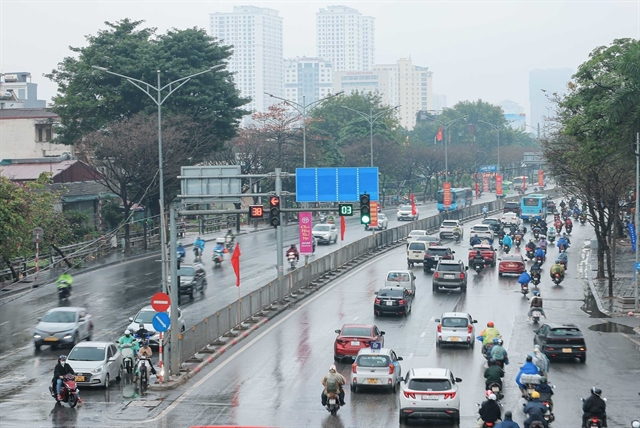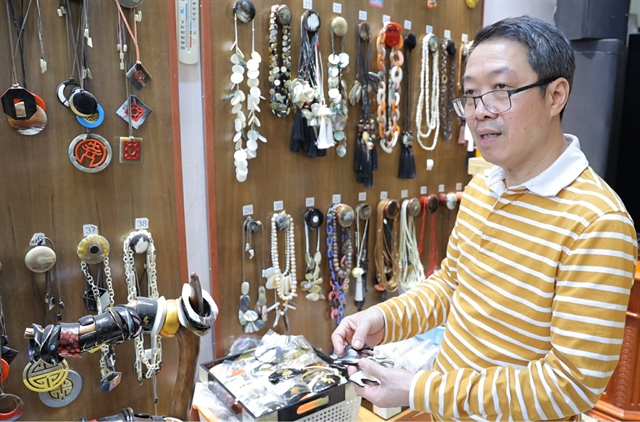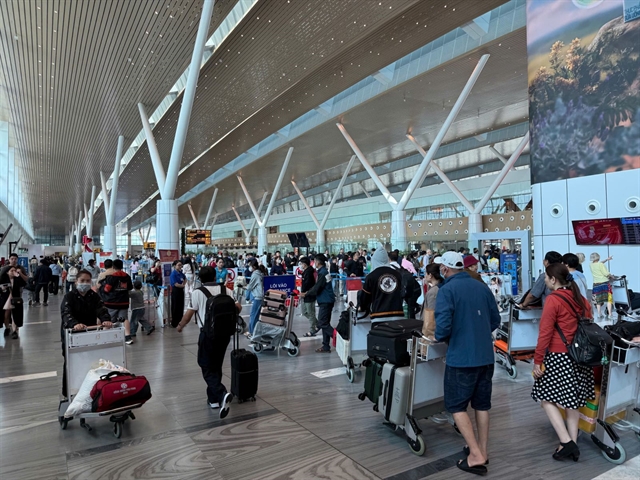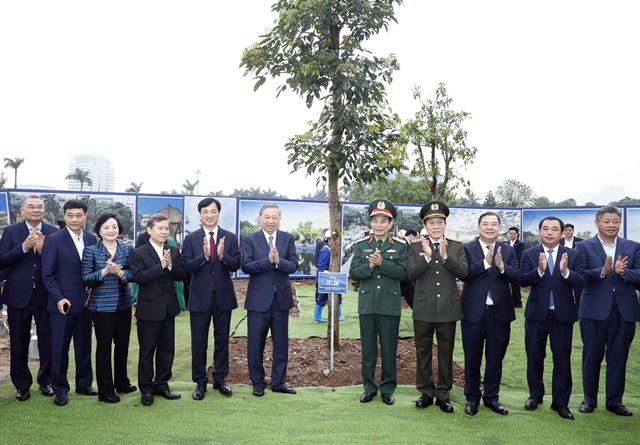 Society
Society
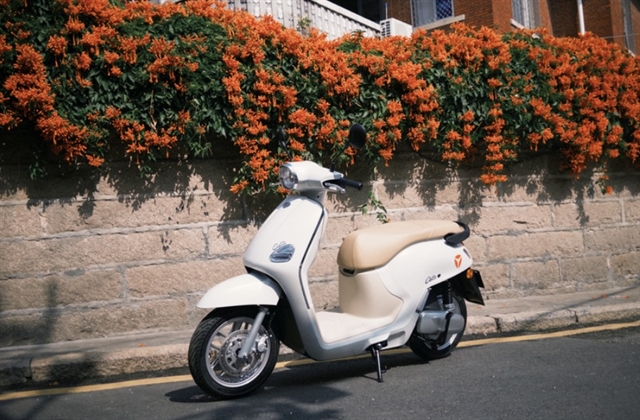
Việt Nam has rolled out the red carpet to welcome back international tourists with vaccine passports as the country continues to relax restrictions and resume socio-economic activities one step at a time.
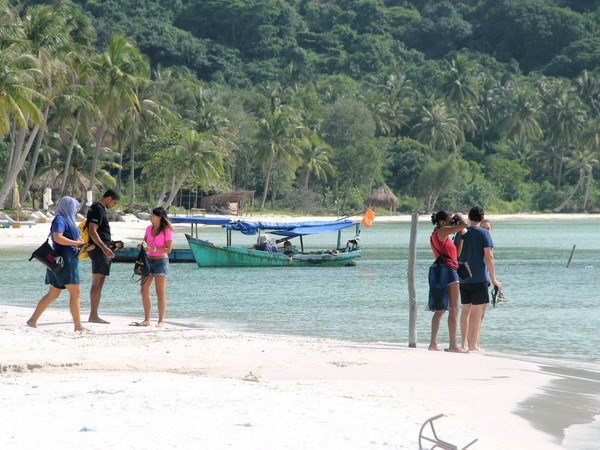
|
| International tourists visit Phú Quốc island before the COVID-19 outbreak. — VNA/VNS Photo |
Khánh Vân
Việt Nam has rolled out the red carpet to welcome back international tourists with vaccine passports as the country continues to relax restrictions and resume socio-economic activities one step at a time.
Phú Quốc Island in the Mekong Delta's Kiên Giang Province will be the first tourist hotspot in Việt Nam to open its doors to foreign visitors from next month following a pilot programme launched by the Ministry of Culture, Sports and Tourism.
Phú Quốc authorities arranged safe destinations to host visitors as well as developed plans to respond to anyone testing positive for SARS-CoV-2. Everyone in Phú Quốc Island District has received their first dose of vaccine and the second dose is currently being rolled out.
The pilot programme will be then expanded to other destinations like Hạ Long, Hội An, Nha Trang and Đà Lạt.
There was more good news for travel lovers who are planning to visit Việt Nam after a long period of restrictions due to COVID-19 is that they will not have to undergo a quarantine period of seven days when visiting localities selected in the programme, as long as they test negative for SARSCoV-2, according to a proposal released by the ministry on Thursday.
The Ministry of Foreign Affairs of Việt Nam is also temporarily recognising 'vaccine passports' of 72 countries and territories, and is in discussions with nearly 80 others on mutual recognition for the 'vaccine passport', to welcome more foreigners to the country.
According to Nguyễn Thị Hương Lan, director of the Consular Department, Ministry of Foreign Affairs, this is important and necessary because the vaccine passports are the key to opening the doors to the world, gradually easing entry restrictions and resuming regular international commercial flights.
The positive knock on effects would see a revival of the travel and hotel industries, contributing to marking the transition of the country’s anti-pandemic strategy from "Zero COVID" to adapting to the situation, living safely with the virus on the basis of a high rate of vaccinations.
There are still days to count before we can see the results of the pilot programme but it has signalled hope in the near future when all international air routes and destinations reopen. The Civil Aviation Authority of Việt Nam has proposed the Ministry of Transport permit airlines to resume international air routes in the fourth quarter of this year.
This progress is a result of the whole country’s efforts to control the pandemic while recovering socio-economic activities. With high vaccination rates, a remarkable drop in the number of new cases of COVID-19 and a strategic shift from a zero-virus strategy to living with the pandemic safely and flexibly, Việt Nam is believed to be on the right track to get back to the new normal.
More than 77 million doses of COVID-19 vaccines have been administered in Việt Nam. It means we have already gone half way to the target of giving 150 million doses to cover 75 per cent of the adult population.
The Ministry of Health aims to reach vaccine coverage of the second dose for at least 80 per cent of people over 65 years old in October and reach the same coverage for people over 50 years old in November.
Vaccinating children
But inoculating adults is not enough to get us back to normality. Children have largely escaped the worst of the pandemic and show less severe symptoms when they contract the virus. But experts say children can pass the virus on to others and suffer negative consequences.
Following steps of many other countries, Việt Nam on Tuesday announced a nationwide campaign to vaccinate children starting with those aged 16 and 17 and teens from next month with the Pfizer/BioNTech COVID-19 vaccine. The vaccine has been recommended for children by the World Health Organization and has been administered to the 12-17 age group in around 30 countries.
HCM City is the first locality in the country vaccinating children. Almost 1,800 students aged 16-17 in the city were vaccinated on Wednesday.
Joining the club, the northern province of Quang Ninh will begin vaccinating children aged 12-17 against COVID-19 on October 30 and central Đà Nẵng City plans to inoculate more than 100,000 children aged 12-18 from November.
The vaccination campaign was highly welcomed by experts. Dr Kidong Park, WHO Representative in Việt Nam, said in an interview with the Vietnam News Agency that the extensive vaccination of children aged 12 and above would help reduce the disease burden and the risk of new variant emergence, potentially by reducing viral transmission.
With this campaign, we hope to see children back in classrooms, on football fields or at birthday parties very soon. These are essential elements to get us back to the full new normal.
Following that roadmap, HCM City has given the green light to open schools in low and moderate pandemic risk areas to reopen under a draft plan issued by the Department of Education and Training this week.
And the southern economic hub is not alone. Bến Tre, Bình Dương, Cần Thơ, Bắc Giang and some other localities have revealed plans to welcome students back to schools, depending on the level of pandemic risks.
This week also marked a happy milestone for residents and businesses in HCM City when the country’s coronavirus outbreak epicentre resumed on-site dining from October 28, giving them the taste of the “new normal” after five months the fourth COVID-19 wave hit the city.
Despite these good signs, Minister of Heath Nguyễn Thanh Long earlier this week still urged localities to raise vigilance as the risk of further COVID-19 outbreaks remains very high.
Benefits harmonised
Việt Nam is on the track to get back to normal and recover socio-economic activities. But as Prime Minister Phạm Minh Chính said no citizen can be safe when others are still infected with COVID-19 and no single country is safe when other countries in the region and the world still fight for the pandemic.
With that spirit, the PM called for a change in awareness, for a safe and flexible adaptation in the new normal and promoted solidarity among countries in the fight against COVID-19 while addressing the 38th and 39th Summits of the Association of Southeast Asian Nations (ASEAN) and related meetings held this week.
The event took place virtually with a focus on the fight against the COVID-19 pandemic and promoting economic recovery.
Prime Minister Chính proposed key tasks that ASEAN should focus on doing in the future, including a holistic, synchronous and flexible approach to COVID-19 control with the involvement of the entire community, with people and businesses being the centre and subject, and with the goal of addressing difficulties caused by the pandemic in the spirit of "benefits harmonised, risks shared".
He emphasised the need to improve the efficiency of coordination mechanisms, improve the capacity of the health system, be proactive in vaccines and treatment drugs and raise the people's awareness.
With all of these efforts, we hope Việt Nam, the region and the whole world will soon enjoy the taste of “new normal” together. Welcome back Việt Nam. Welcome back the world. — VNS
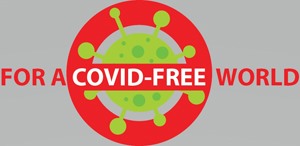
|


